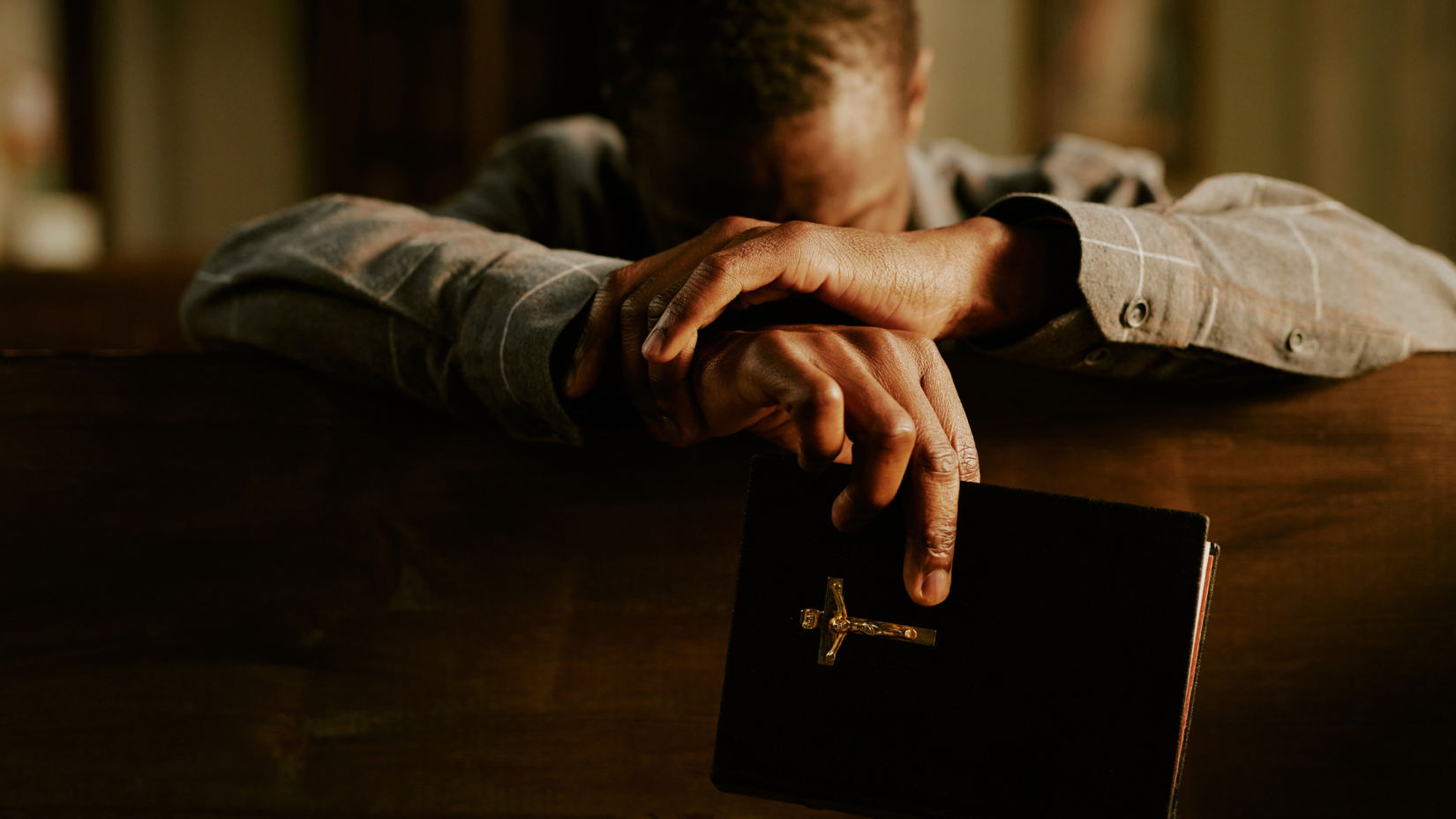
God and Hard Hearts
by Brax Carvette
You might be going through book of Exodus and wonder about God’s words over and again, “I will harden Pharaoh’s heart… and he will not listen to you” (Exodus 7:3, 4). You might wonder about it because it seems like it means that God is violating Pharaoh’s free will.
This might make us uncomfortable for a few reasons.
For one, we may have encountered people in our lives or see people on a broader scale in the news who violate other people’s free wills. These people are not good people. They are self-centered, often narcissistic, and maybe even psychopathic. So, experience tells us that someone who violates someone else’s free will is not someone to be trusted and certainly not praised.
Another reason that this idea of God hardening Pharaoh’s heart is uncomfortable for us might be because we know that God created us with the freedom to choose for ourselves whether or not we will follow God or fall. That is, after all, what Genesis 3 and Adam and Eve’s choice seems to show us: that God allows his human images to reflect his own freedom— even if it means that their choice will be rebellion against God’s perfect will.
So what should we make of God hardening the heart of Pharaoh?
Well, first I think it’s helpful to go to the original Hebrew that Exodus was written in to get a better understanding of what this all means. There are a network of words that God uses to describe what he’s doing to Pharaoh’s heart. One of the words that is translated as “harden” in most English translations of the Bible is the word “hazaq” (חזק) in Exodus 4:21 (also 7:13, 22, 8:19, 9:12, 10:20, 27, 11:10, 14:4, 8, 17, ). This word, though, doesn’t carry with it the idea of being hardened most of the time it shows up in the Hebrew Bible. Very often, it’s the word that is translated “strengthen” or “give strength to” (see Daniel 10:18).
So what should we make of that word being used to describe what God is doing with Pharaoh? I think it would be fair to say that God is strengthening Pharaoh’s heart. It’s entirely up to Pharaoh as to what he will do with his strength. But why would God strengthen Pharaoh’s heart? God is all-knowing. He knows what Pharaoh will do with the strength that he gives him. He knows that it will embolden Pharaoh to keep fighting against the Israelites and against their God.
But Pharaoh is free to do otherwise with the strength that God gives him. He really could use the strength that God gives him for good. His disobedience and rebellion is not fate nor is God making him disobey the command, “Let my people go!” The main reason for Pharaoh’s rebellion is his own wickedness— not the strength that God gives him.
But there are two other words that are used to describe the hardening of Pharaoh’s heart are
qashah (קשה) and kaved (כבד).
Qashah is used less than kaved, but it certainly complicates things when it comes to our understanding of what is going on with God and Pharaoh’s heart. The word is used around the concept of stubbornness, being difficult, difficulty itself, and being “stiffed-necked.” So, with that understanding, a clear reading of Exodus 7:3–4 is something like this, “But I will make Pharaoh’s heart stubborn, and though I multiply my signs and wonders in Egypt, he will not listen to you…” Stubbornness definitely feels like it has more to do with our wills. This, at least to me, seems like a step beyond merely giving Pharaoh strength. It feels like God is manipulating more of Pharaoh’s will and/or intentions. Like he’s shutting off the part of Pharaoh’s brain that is responsible for reasoning and maybe even self-preservation!
But let’s look at the last word that is used to describe Pharaoh’s hard heart: kaved. Exodus 9:34 is an example where this word is used, “But when Pharaoh saw that the rain and the hail and the thunder ceased, he sinned yet again and hardened his heart, he and his servants.” Or, again, in Exodus 10:1–2, “Go in to Pharaoh, for I have hardened his heart and the heart of his servants, that I may show these signs of mine among them, and that you may tell in the hearing of your son and of your grandson how I have dealt harshly with the Egyptians and what signs I have done among them, that you may know that I am the Lord.”
Though it means different things in different verb-forms and contexts, in both of these passages, the word kaved (which often can mean “glory” in its noun-form) means “to make heavy, dull, or unresponsive.” This seems pretty straightforward in both of these passages: Pharaoh makes his heart dull and unresponsive and God makes Pharaoh’s heart dull and unresponsive to what God is doing.
But it’s precisely in these two passages that I’ve selected that the problem gets more complicated and that much more interesting! Pharaoh is described as sinning “yet again” by hardening his heart. Yet, God is said to also be making Pharaoh’s heart dull and unresponsive and there is no sin on God’s part.
How is that possible?
First of all, we won’t be able to settle this matter in one blog post. This question has been asked ever since people read the Exodus story, I’m sure, and has certainly been a debate alive and well for thousands of years of church history.
But, at least in Exodus, we can tentatively say a few things.
First, God has the right to manipulate the hearts of evil human rulers so that the power of the Great I AM may be put on display (see Exodus 9:16). And I think that this is important to note: When the Hebrew Bible talks about hardening hearts, it is largely in connection with wicked human rulers. The hardening of hearts is not something that God does to his own people, but to those who are in league with spiritual forces of evil who seek to do harm to God’s people. It is something he does after the ruler has proven himself to be thoroughly wicked, who will stop at nothing to rebel against God and seek the destruction of all that God loves. He does it to bring about their own judgment and destruction (see Joshua 11:20).
Therefore, and secondly, God’s manipulation of evil human rulers’ hearts does not mean that such rulers are innocent— their rebellion against God is something that they are actively doing (see again Exodus 9:34 above).
Third, all of us have the choice to do what we will with the strength that God gives us. Whether we are given breath, a heartbeat, brain synapses that fire, a big brain, a tender heart, powerful words, material goods, a family, a TV, a smartphone, a car, or an air-fryer, we can choose what to do with what we’ve been given. If we set our hearts on using what we have been given to ignore God and hurt others, then all the strength that God graciously gives us will only serve to bring on us more severe judgment on us when the Lord sits on the throne on Judgment Day.
So, maybe, the story of Pharaoh and his hard heart isn’t so much a theological question that needs to be figured out. Maybe it’s a warning. Maybe it’s a warning to keep our own hearts soft, tender, quick to listen, and responsive to what God commands us to do. Let us be attentive to our own hearts as the wellspring of life (Proverbs 4:23) and keep watch lest our end be like Pharaoh: sitting in a land of darkness and death, under God’s judgment.

Brax Carvette, Youth Minister
Brax is the youth pastor at NorthRidge Fellowship and has been at NorthRidge since 2006. He and his wife, Jessica, have a son, two daughers and they live in Elk River, Minnesota.


Contact Us
If you have questions about an article you read on our blog, reach out to Brax Carvette, Blog Editor at braxc@nrf.life or call 763.270.6425.
Share our Blog on Facebook!











